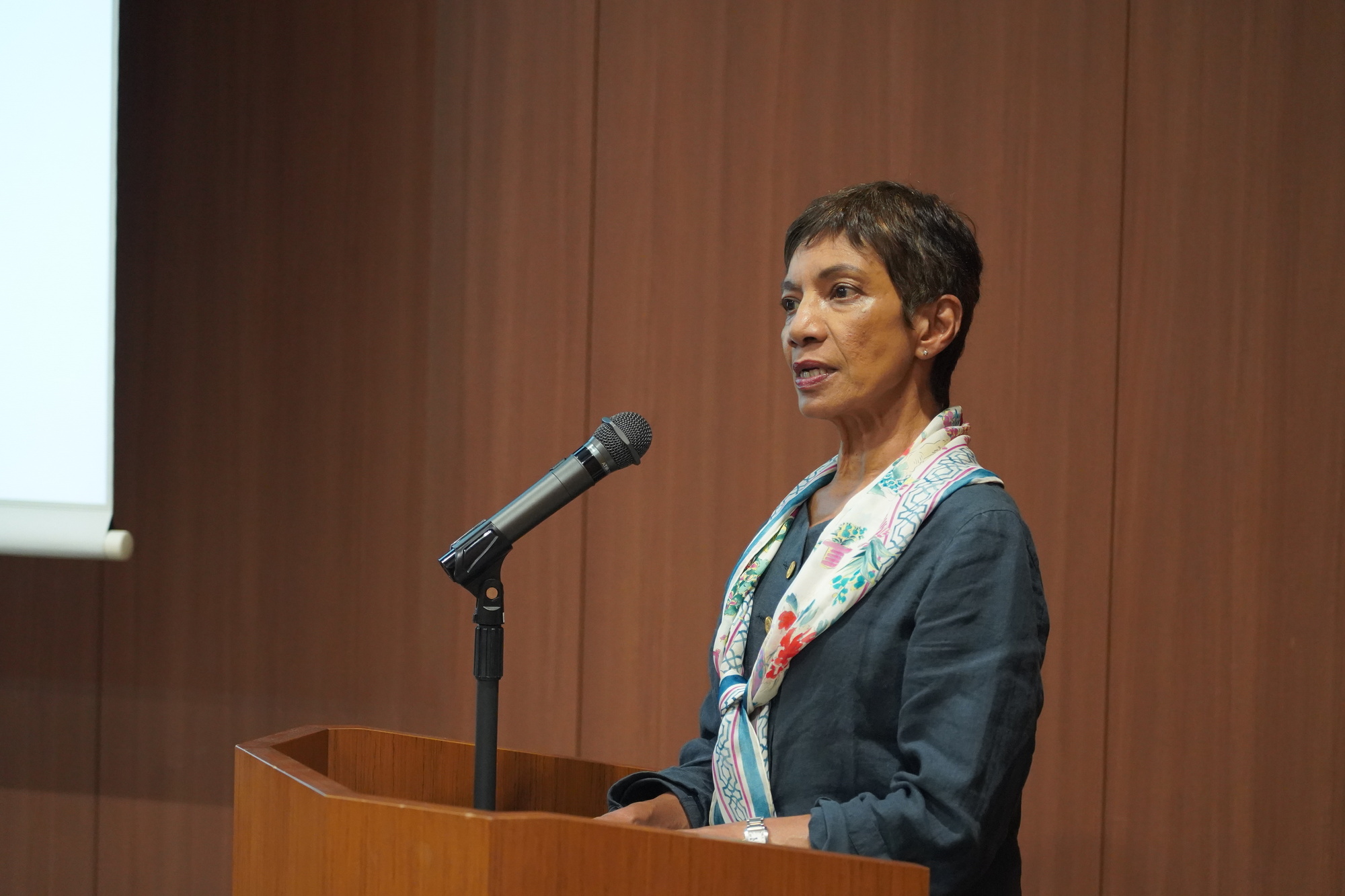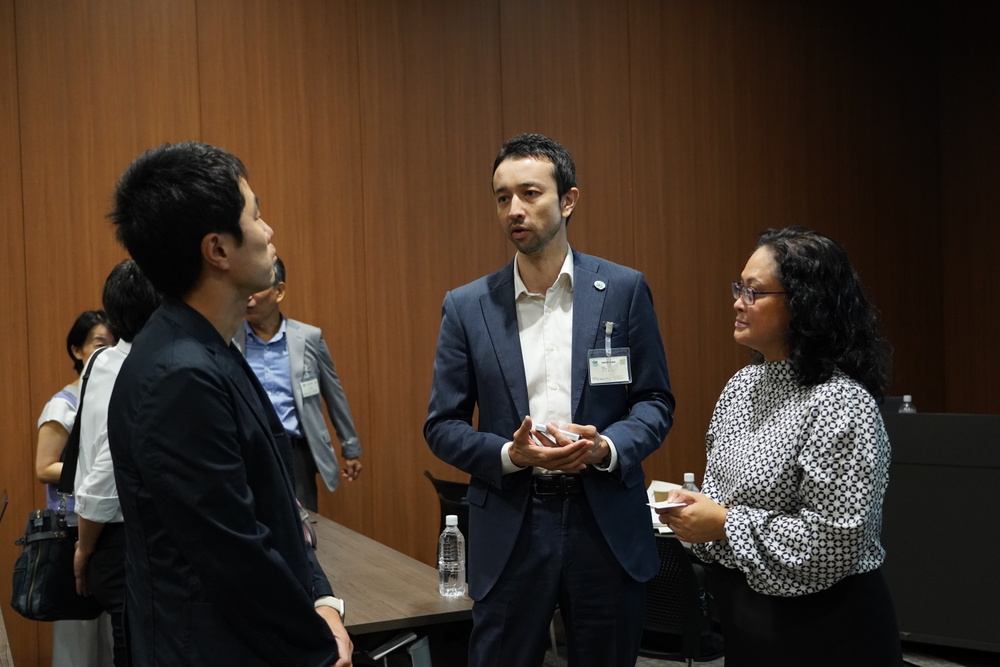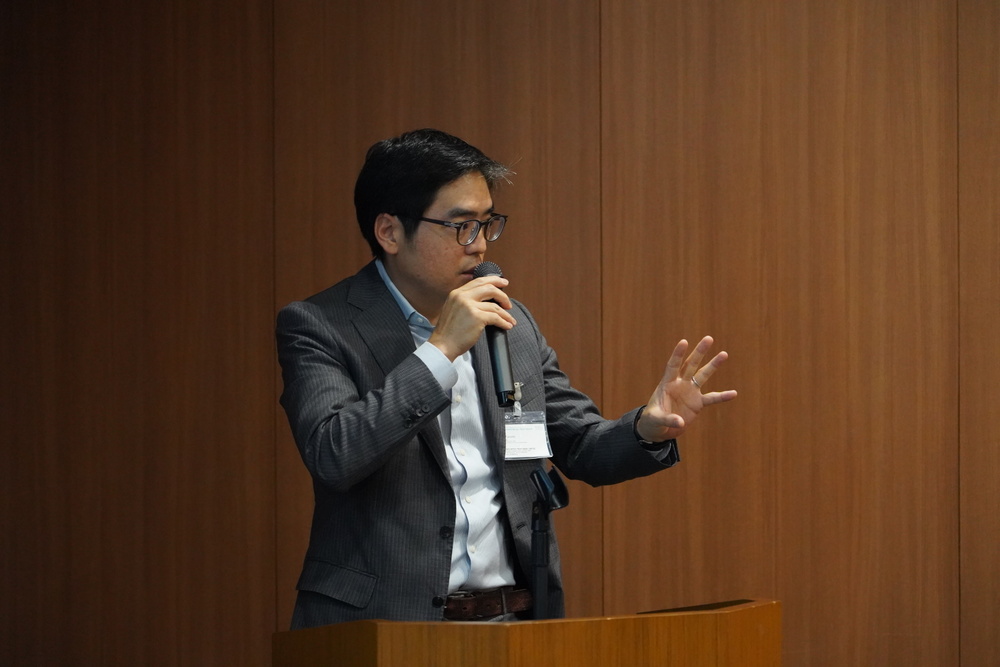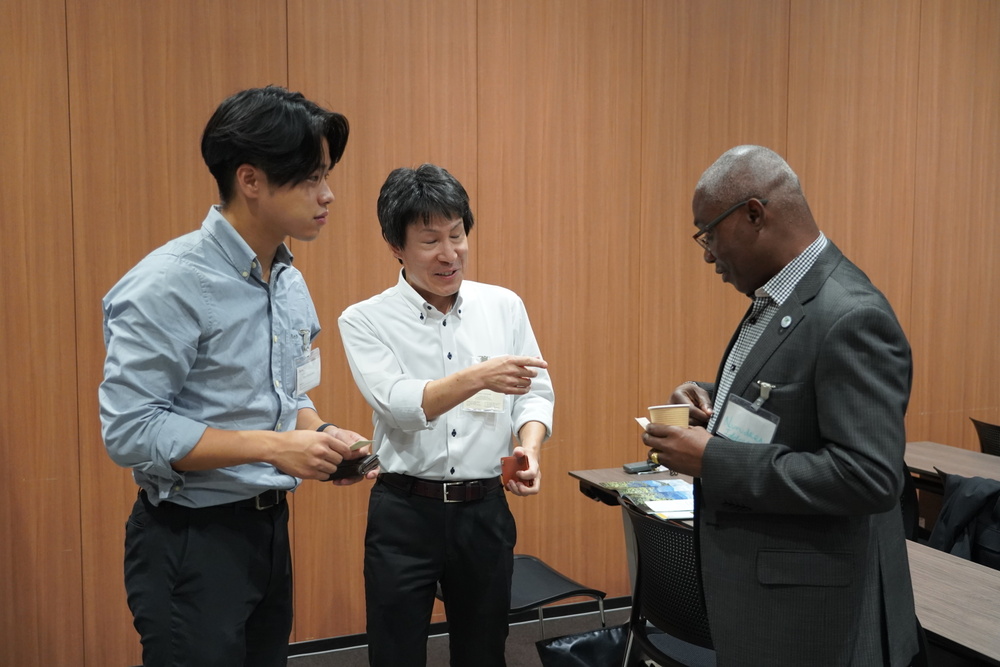Partnering for a circular bioeconomy: ITTO and private sector explore forest-based solutions in Tokyo
08 October 2025, Tokyo

ITTO Executive Director Sheam Satkuru delivers a presentation on advancing the circular bioeconomy during the ITTO event held in Tokyo, Japan on 30 September 2025. © Paula Sarigumba/ITTO
Tokyo, 30 September 2025 – An ITTO collaborative event with the private sector in Japan attracted 25 participants to explore pathways for achieving a circular bioeconomy through collaboration. The circular bioeconomy extends beyond bio-based industries, creating opportunities across diverse sectors through technological innovation and benefit-sharing. The Tokyo event introduced ITTO’s broad vision and highlighted potential business and investment opportunities for companies and financial institutions in Japan.
Forests are central to the circular bioeconomy, as sustainably sourced wood can replace carbon-intensive materials and reduce their environmental impact. They also hold potential for addressing challenges such as illegal logging, weak governance, and changing consumer misconceptions. Realizing this potential, however, requires stronger policies, investments, and collaboration to ensure that sustainable timber value chains fully contribute to the circular bioeconomy.
Leveraging its strong network with tropical timber-producing countries, ITTO is well-positioned to advance this agenda. Executive Director Sheam Satkuru pointed to ITTO’s extensive track record in implementing projects in tropical timber-producing countries, along with its trust-based relationships with governments, Indigenous Peoples and local communities, international organizations, civil society groups, and local enterprises.

“The circular bioeconomy cannot be realized in isolation. It requires meaningful partnerships that bring together public institutions, the private sector, and local communities,” said Ms Satkuru. “By connecting tropical timber-producing countries with investors and businesses in consumer markets like Japan, ITTO serves as a bridge to scale up sustainable win-win solutions”.
Drawing on past examples, ITTO presented clear pathways for companies to engage in collaboration, stressing the private sector’s essential role in driving sustainable change. Mohammed Nurudeen Iddrisu, ITTO Director of Trade and Industry, highlighted that private companies bring advanced technologies and specialized expertise that can significantly contribute to realizing a circular bioeconomy. Beyond technical expertise, the private sector also possesses a strong financial capacity to scale up projects and design sustainable models that balance environmental, social, and economic objectives.

Shin Furuno of the Sustainable Business Department at Sumitomo Mitsui Trust Bank (SMTB) showcased the bank’s forest investment initiatives as part of its vision to create a virtuous cycle of finance, assets, and capital that addresses social issues while expanding sustainable investment opportunities. He highlighted forestry’s unique position as a non-traditional asset class, with low correlation to conventional financial products and the potential to deliver stable income and serve as an inflation hedge. He further emphasized its strong value as a vehicle for ESG and impact investing. Forest investments also offer opportunities to generate carbon credits and deliver tangible contributions to nature-positive outcomes.
At the same time, Mr Furuno acknowledged challenges, including risk-return considerations, limited reference data in emerging markets, policy and country risks, and the complexities of conducting human rights and environmental due diligence. From SMTB’s experience, he shared practical lessons such as diversification through multiple tree species, carefully assessing organizational capacities, recognizing risks, and putting safeguards in place. Looking forward, SMTB envisions expanding forest investment opportunities by building strong partnerships and advancing innovative financing models that align profitability with sustainability.
Closing the session, Ms Satkuru invited private sector engagement in ITTO’s work: “We welcome discussions on how you can get involved in ITTO’s projects and invest through the network we have with tropical forests around the world.”
